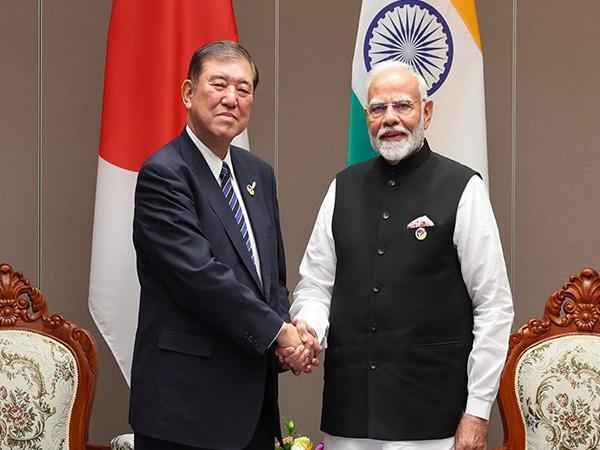
Our Technology & India’s Talent Complement Each Other: Japan PM
The Japan-India relationship has been gaining momentum in recent years, with both countries working together to strengthen their economic ties. The India-Japan Joint Economic Forum, held recently, was a significant step in this direction. During the forum, Japan’s Prime Minister, Shigeru Ishiba, made a notable statement that highlights the potential for collaboration between the two nations. According to PM Ishiba, Japan’s advanced technology and India’s outstanding talent complement each other, leading to a dramatic expansion of their economic ties.
This statement is significant because it acknowledges the strengths of both countries and the potential for synergy between them. Japan is known for its cutting-edge technology, innovative products, and high-quality manufacturing capabilities. India, on the other hand, has a large pool of talented and skilled professionals, a huge market, and a growing economy. When these strengths are combined, the result is a powerful partnership that can drive growth and development.
One of the key areas where Japan and India are already collaborating is in the field of manufacturing. Many Japanese companies are playing a key role in India’s Make in India initiative, which aims to promote domestic manufacturing and reduce the country’s reliance on imports. These companies are not only providing technology and expertise but are also investing heavily in India’s infrastructure and manufacturing capacity.
One example of this collaboration is the construction of the Mumbai-Ahmedabad High Speed Rail project. This project is a joint venture between Japan and India, with Japanese companies like JICA and Japan’s Maruti Suzuki playing a key role in its development. The project is expected to be completed by 2028 and will be one of the fastest train routes in the world, reducing travel time between the two cities to just over two hours.
The success of this project is a testament to the potential for collaboration between Japan and India. By combining Japan’s advanced technology with India’s outstanding talent, the two countries can achieve great things. This partnership can not only benefit both countries but also contribute to the growth and development of the region as a whole.
So, what are the implications of PM Ishiba’s statement? Firstly, it highlights the importance of collaboration between Japan and India. By working together, the two countries can achieve more than they could alone. This collaboration can be seen in various fields, including manufacturing, technology, and infrastructure development.
Secondly, PM Ishiba’s statement underscores the importance of technology transfer. Japan’s advanced technology can be used to upgrade India’s manufacturing capabilities, improve productivity, and increase competitiveness. This technology transfer can also help India to develop its own innovative products and services, reducing its dependence on imports and increasing its exports.
Thirdly, the statement emphasizes the importance of skill development. India has a large pool of talented and skilled professionals, but there is a need to develop more skills in areas like technology, engineering, and manufacturing. Japan’s expertise can be used to develop these skills, enabling Indian professionals to work on complex projects and contribute to the growth and development of the country.
Finally, PM Ishiba’s statement highlights the potential for job creation. The collaboration between Japan and India can lead to the creation of new jobs in various fields, including manufacturing, technology, and infrastructure development. This can be a win-win situation for both countries, as it can help to reduce unemployment and increase economic growth.
In conclusion, PM Ishiba’s statement is a significant development in the context of the India-Japan relationship. It highlights the potential for collaboration between the two countries, the importance of technology transfer, skill development, and job creation. By working together, Japan and India can achieve great things and contribute to the growth and development of the region.



